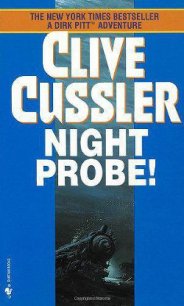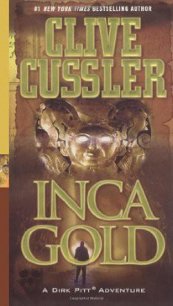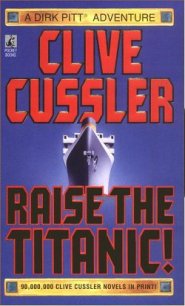The Tombs - Cussler Clive (читать книги бесплатно полностью txt) 📗
“You’re using the same reasoning we are,” said Sam. “The cargo must have weighed several tons, so it was loaded on a huge wagon, probably drawn by a herd of oxen. They would have gone across the plains east of the river, where they didn’t need a road, and probably stayed out of sight of the river until the end. In fact, they probably had groups of outriders on all sides to be sure nobody came close.”
“Agreed,” said Selma. “So when we compare the map on the vest with the aerial photographs, we get a spot at 46° 25' 55" north and 19° 29' 19" east. That’s about a hundred thirty miles south of Budapest.”
“What’s there?”
“Well, it could be worse,” she said. “It’s not a cathedral or a nuclear power plant. It’s the Grape Research Institute, in Kiskunhalas. The halas part means ‘fish.’ In medieval times the town was surrounded by lakes, presumably fed by the river. They’re long gone, but the memory lingers on, as does the sandy soil, which is terrific for growing wine grapes.”
“How does a modern person get there?”
“From Szeged, you take Route 55 until you reach Route 53, then switch.”
“We’ll let you know when we’ve figured out how to do this,” Sam said. “We’ve got a whole lot of activity going on at the Tisza River to make Bako’s men think we’ve already found the tomb underwater.”
“If I were you, I’d keep that up,” she said. “Arpad Bako has been investigated for three murders besides Tibor Lazar’s son. And I wish you good hunting. If anything comes to mind that I can do, give me a call.”
“We will.”
The next morning, Sam and Remi went down to the Tisza River as usual and spent most of the day diving to keep up the pretense that they’d found something. It wasn’t until after dark that Sam, Remi, and Albrecht saw Tibor arrive in an eight-year-old Mercedes sedan. “Is this your car?” Sam asked.
“My personal car?” said Tibor. “No. I own it, but we use it as a cab. We have a number of regular customers who don’t want a taxi with a sign on it. We take them to restaurants and parties. In Hungary, the legal amount of alcohol you can drink and drive is zero, so they need to be driven. Me, I walk. I don’t need a car.”
Sam loaded the metal detector, three short-handled spades, and night vision goggles into the trunk and climbed into the sedan with the others. Tibor drove them north along the river, staring intently into the rearview mirror at times.
“Are we being followed?” asked Remi.
“I don’t think so,” Tibor said. “It’s hard to tell on these country roads, though. If somebody is behind you when you leave one town, he’ll stay behind you all the way to the next town. And it’s dark, so all you can see is his headlights.”
“But you don’t think anyone is following us?”
“No. The one who’s been behind us all this time drives like my grandmother. Anybody we have to worry about would be bold and crazy.”
Sam and Remi caught each other looking out the back window and smiled. Sam said, “At the next town, let’s double back and see if he does too.”
“Good idea,” said Tibor. He pulled up next to a restaurant at the next town, then drove around it along a narrow and winding road that would accommodate just one car at a time, emerging again near the restaurant. Then he pulled back onto the highway. They didn’t see a car ahead of them, but they could no longer see the car behind them either, so they felt reassured.
Sam used the GPS on his phone and directed Tibor the rest of the way. When he saw they were nearing the edge of a huge vineyard outside the city of Kiskunhalas, he said, “Turn your headlights off.” The road ahead went dark, and the car rolled to a stop. In the moonlight it was possible to see, on their left, a low hillside gently curving upward like an amphitheater. There were long rows of vines on weathered stakes connected by strands of wire for support. Sam, Albrecht, and Remi got out of the car, took the metal detector, the night vision goggles, and the short-handled, sharp-bladed spades for digging in the sandy soil out of the trunk and closed it quietly. Sam bent close to Tibor’s window and said, “Wait for us somewhere out of sight, and keep your phone on. If you see someone coming, or the sun is about to rise, call.”
“There are woods up ahead. I’ll be waiting there.” Tibor drove slowly off, turned, and disappeared into the night.
The three climbed a low rail fence and walked to what they judged to be midway along the crescent-shaped accumulation of soil. Then Sam turned on the metal detector and began to search. He bent over, to present a low profile, and walked up and down the rows of vines, stopping at the end of each row and then moving to the next.
Albrecht and Remi knelt at either end of the rows, watching through their night vision goggles for any sign of people coming. Occasionally they would switch to the infrared setting to see if they could pick up heat from a human being in any direction, then switch back to normal night vision. None of the three shone any light, and there was no sound except for the steady, faint summer breeze through the grapevine leaves and the slough of Sam’s shoes on the soft ground between the staked vines.
Sam moved methodically from the upper end of the crescent down toward the flat land. The crescent framed a loop made in the river where the channel curved and the water slowed. The alluvial soil had been deposited there before the river was diverted—highest at the midpoint of the curve and tapering on both ends.
Suddenly all of the metal detector’s readings changed. Sam saw the needle bury itself at the upper end. He moved a few steps and the needle dropped again. He came at it from the side and got a similar reading. He stood up straight and waved to the others, then knelt down. Remi and Albrecht came from their stations and knelt beside him.
“Is this it?” whispered Albrecht.
“It could be a lot of things,” Sam said. “All I know is that it’s metal and that it’s big.”
Remi rose and went to the end of the row, then came back with the spades. They began to dig, each moving apart from the others and digging quickly in the sandy soil. The work went steadily, and soon they were down about five feet, lifting each shovelful up above their shoulders to throw aside. Sam’s shovel rang out as it hit metal. A second later, Remi’s scraped a smooth, hard surface.
They set aside their spades and used their hands to clear the dirt off a metal plate. It was a flat rectangle, perhaps six feet long and three feet wide. Albrecht whispered, “There’s rust. The material is an impure form of iron. This could be the lid of the sarcophagus.”
“Let’s clear around it to get a better look,” Remi said.
Sam and Remi moved to the ends and began digging around the outside, so Albrecht began on the long side. They dug in silence, the suspense goading them to work harder and faster. But as they dug, each of them hit a second surface, just below the iron slab, that seemed to be stone.
Sam said, “Let’s see if we can budge it.”
All three stood at one side of the iron slab and used their spades to try to make it move. They strained, tried inserting the tips of their spades under the edge and pushing. The slab budged a fraction of an inch. “It moves. Let’s dig a space beside it and push the lid in it.”
They increased the size of the hole by three feet so that there was an empty space for the lid. They pushed again but made little progress. “Let’s try something else,” Sam said.
He climbed out and went to the nearest row of grapevines, where there were wooden stakes with sixpenny nails driven partway in to hold the wires for the vines. He began to pull the nails out. Sam looked closely at each one, twirled it in his fingers. He put some in his pocket and rejected some, pushing them back into the holes in the stakes.
“How many do you want?” asked Remi.
“Thirty or forty. Don’t take any that are bent.”




